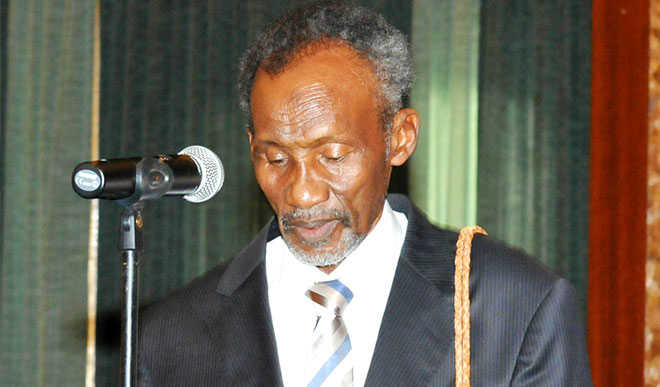Justice Yunusa: ‘NJC hasn’t dealt with the matter completely’
A non-profit making organisation, Access to Justice (A2J), has said the National Judicial Council (NJC) has not dealt with the Justice Nasiru Yunusa’s issue as completely and forthrightly as it could have done. Joseph Otteh, Executive Director, Access to Justice (A2J), stated this during a telephone interview with Daily Trust yesterday. This is coming on […]


A non-profit making organisation, Access to Justice (A2J), has said the National Judicial Council (NJC) has not dealt with the Justice Nasiru Yunusa’s issue as completely and forthrightly as it could have done.
Joseph Otteh, Executive Director, Access to Justice (A2J), stated this during a telephone interview with Daily Trust yesterday.
This is coming on the heels of President Muhammadu Buhari’s allegation that the judiciary is yet to meet the public expectations in its fight against corruption.
The president had noted that the corruption cases filed by his administration are not progressing due to delay tactics employed by lawyers.
He appealed to the judiciary to support his administration’s fight against corruption, adding that a well-functioning criminal justice system sought to move the country towards greater growth and development.
“I am worried that the expectation of the public is yet to be met by the judiciary with regard to the removal of delay and the toleration of delay tactics by lawyers,” Buhari said.
A2J boss said the non-criminal ground upon which the NJC hinged Yunusa’s suspension may have foreclosed bringing up any criminal allegation except there was evidence that could be used to create criminal motive.
“I don’t see how much you can make from what NJC has done. If NJC found criminal transfer of money, Yunusa could have been subjected to criminal trial. NJC has not told us what it is doing with our petition,” he said.
He said once the NJC has taken action against a judge, then the anti- corruption agencies don’t want to pursue the case to its logical limit.
According to Otteh, if the NJC pursued the matter more than that, then it would be seen to be doing a new thing.
“NJC should investigate all the allegations. If NJC should stop at one, it will not send a very strong message. Retirement is not enough dis-incentive even with the kind of enticement out there.
“NJC should look at both the criminal and non-criminal aspects and it will be in a better place to fight corruption in the judiciary and wield the stick,” he said.
According to him, A2J also wrote a petition against Yunusa urging the NJC to investigate EFCC’s public allegations over criminal money transfer made against him.
Most of the lawyers who spoke to our correspondent said that Yunusa should be prosecuted.
Abubakar Sani, a Kano-based activist said, “Yes, Justice Yunusa should have his day in court. He is more than capable of defending himself.”
Barrister Femi Aborisade said, “I agree that any judge found wanting in the area of corruption should not just be retired or dismissed, such a person should equally be prosecuted. However, where the judge feels he has not been fairly treated, he or she also has the right to seek redress in the court of law.”
Rising from its 77th meeting, July 15 this year, the National Judicial Council (NJC), under the chairmanship of the Chief Justice of Nigeria (CJN), Justice Mahmud Mohammed, announced the suspension of Justice Mohammed Nasiru Yunusa of the Federal High Court, Lagos Division.
According to Soji Oye, the NJC also recommended to President Muhammadu Buhari, the compulsory retirement of Justice Yunusa following the allegations contained in the petitions written against him by the Civil Society Network Against Corruption that he granted interim orders and perpetual injunctions, restraining the Attorney-General of the Federation, the Inspector General of Police, Independent Corruption Practices and Related Offence Commission (ICPC) and the Economic and Financial Crimes Commission (EFCC) from arresting, investigating and prosecuting some persons accused of corruption.
